Archive
2022
KubaParis
Voracity Loop
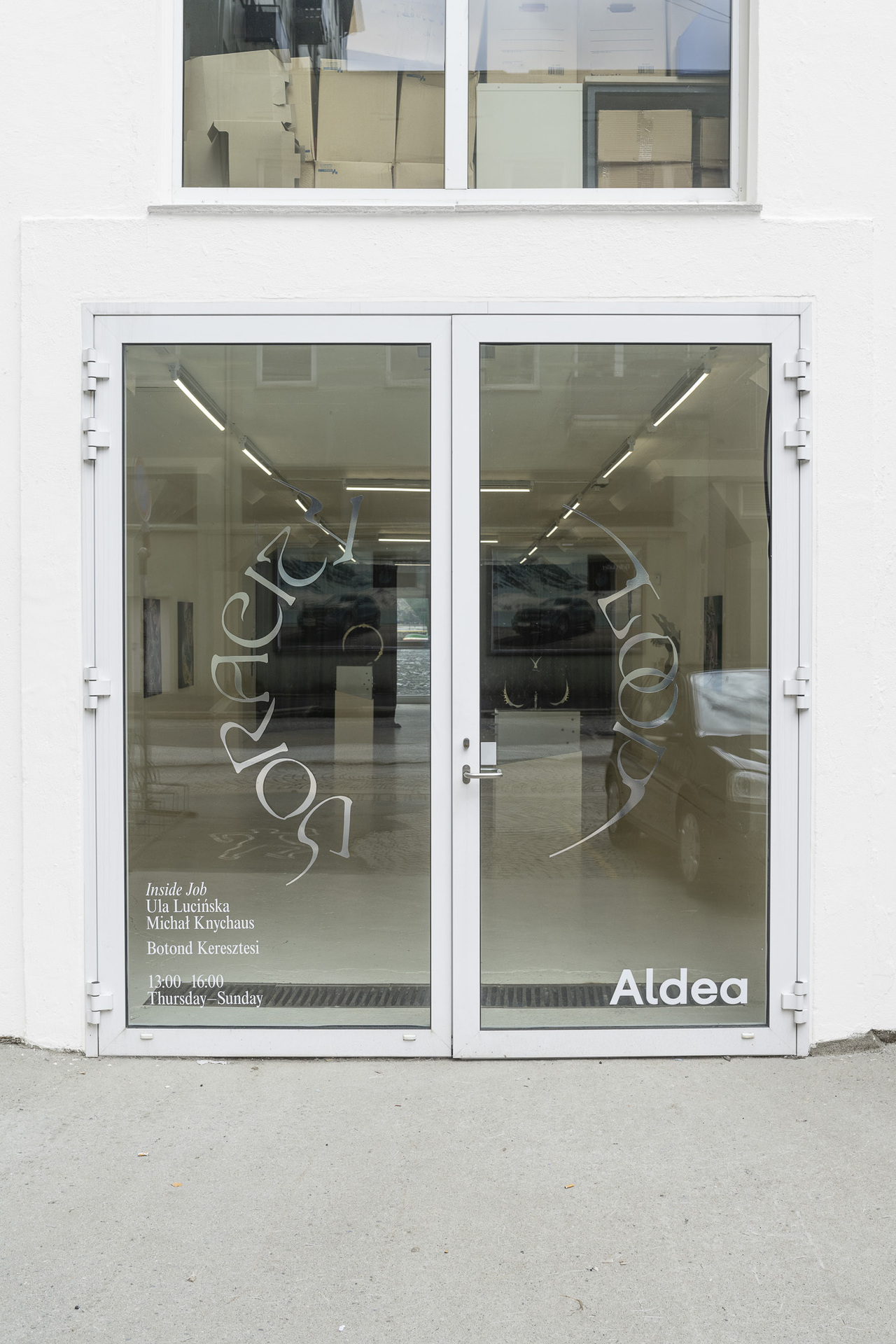
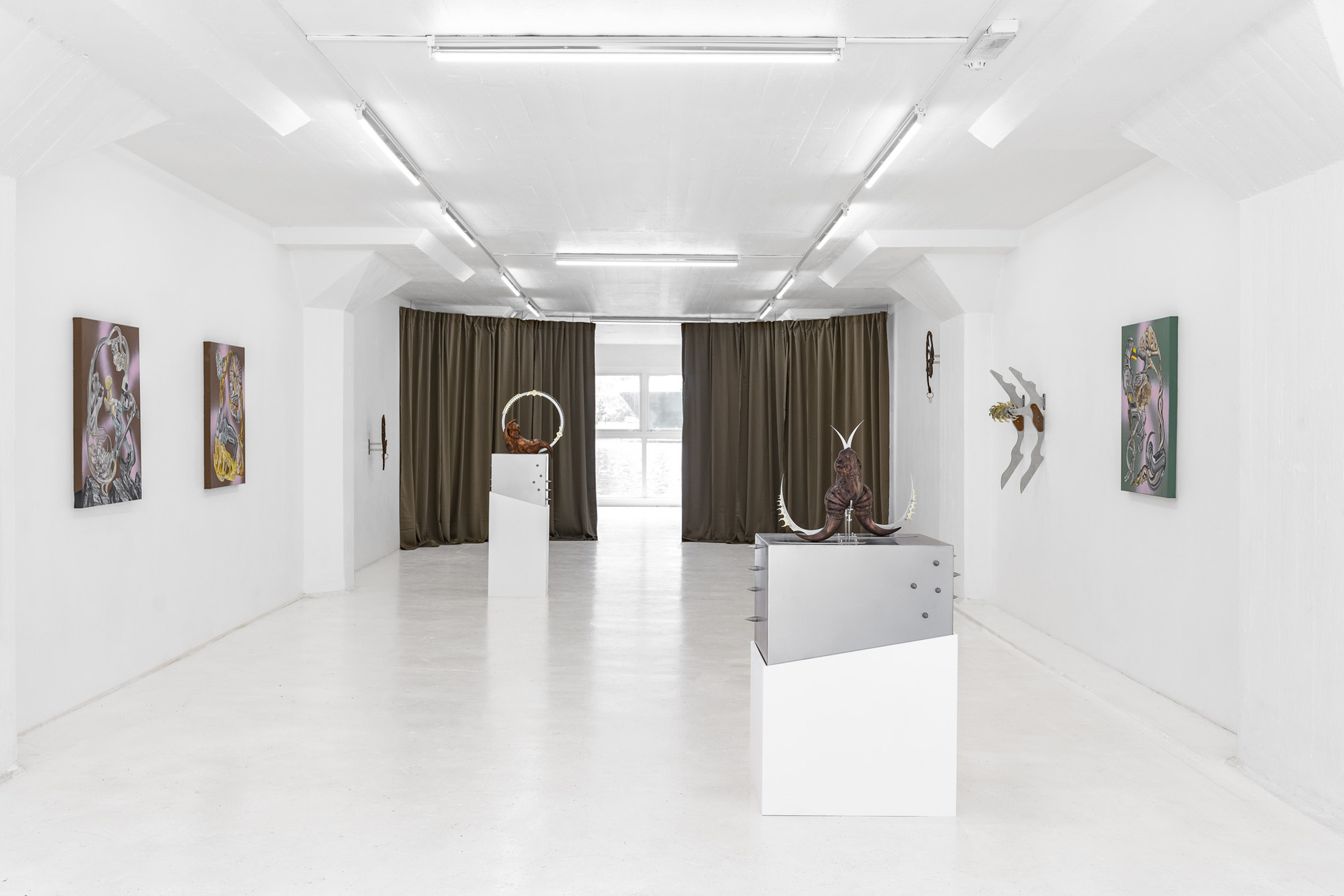
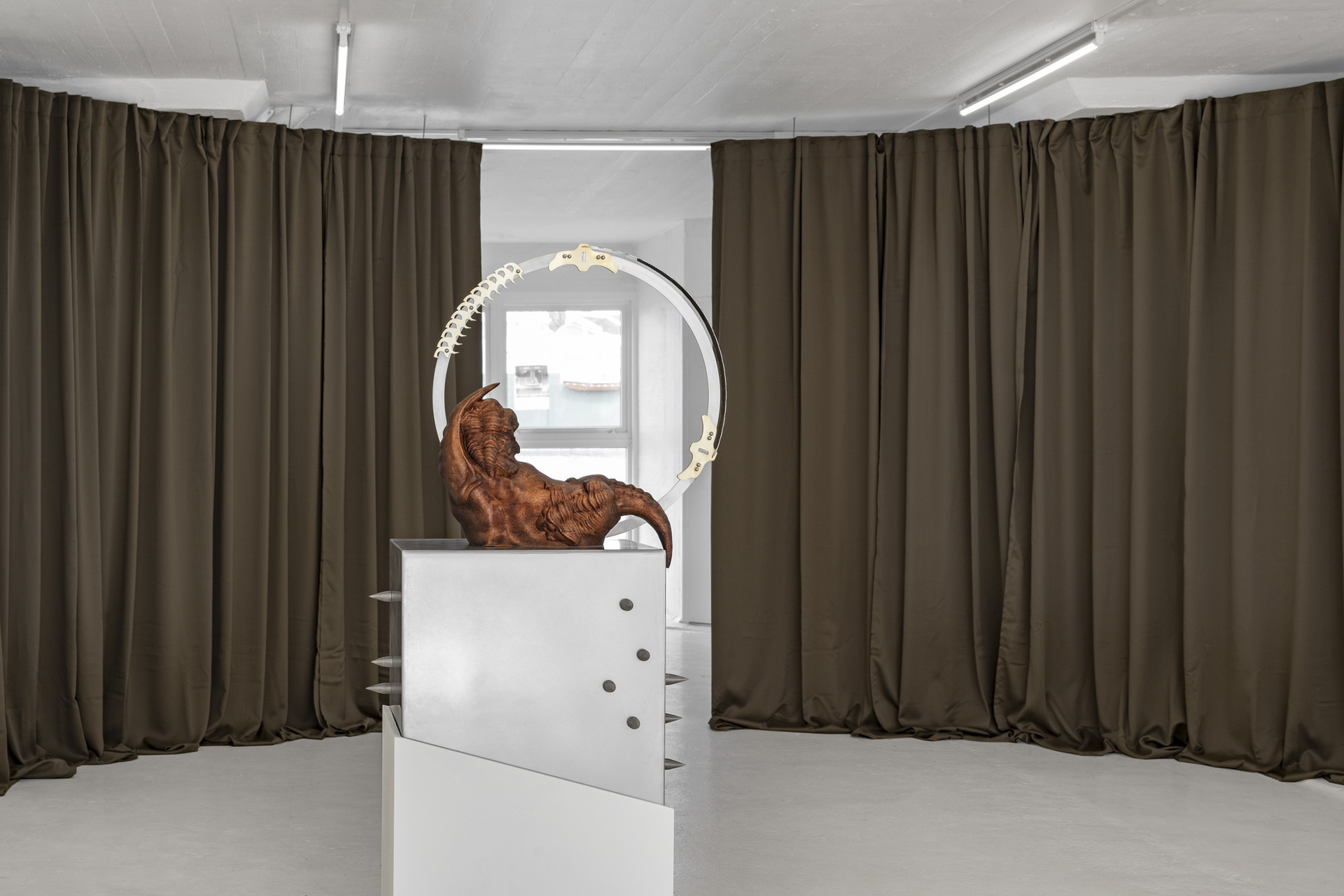
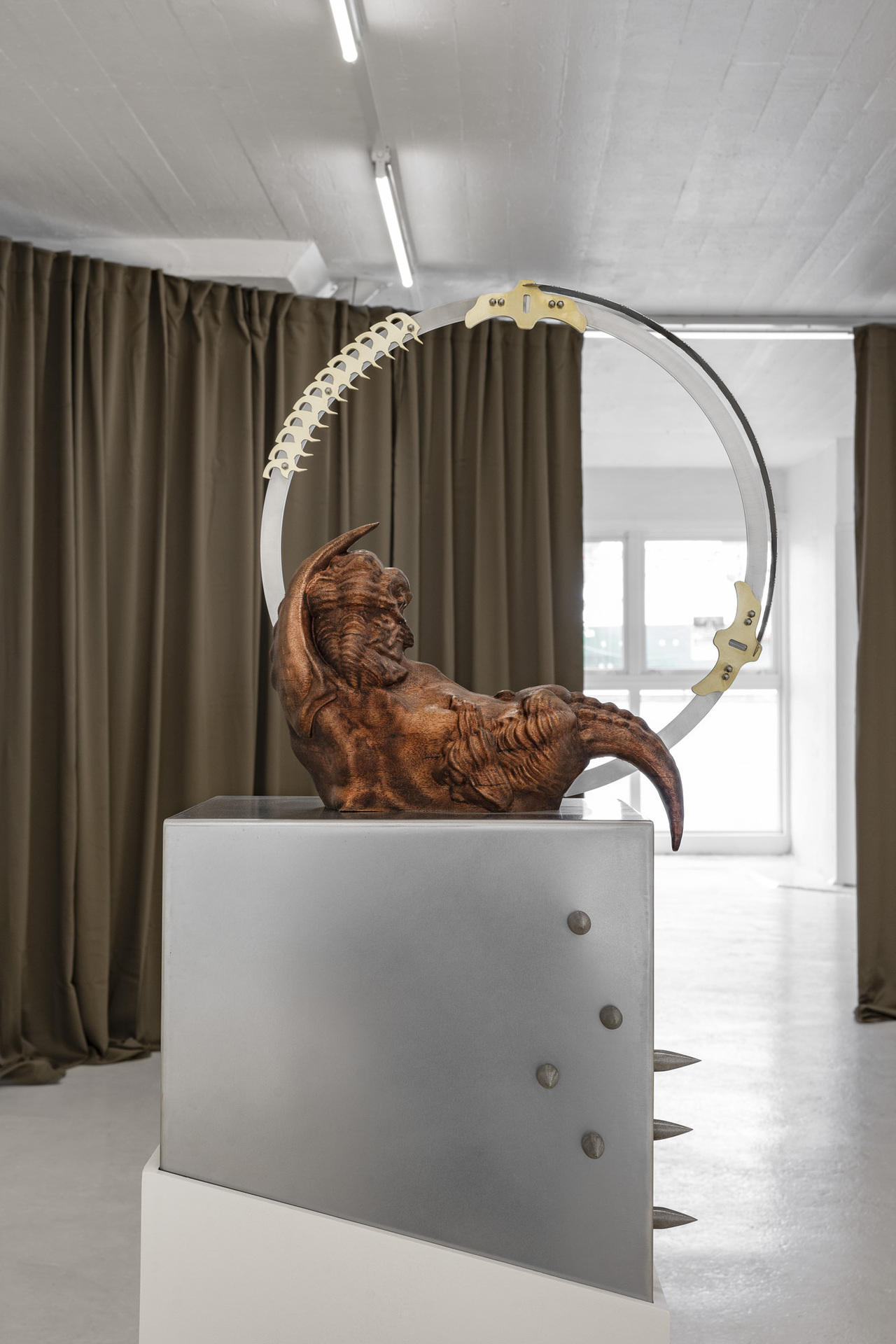
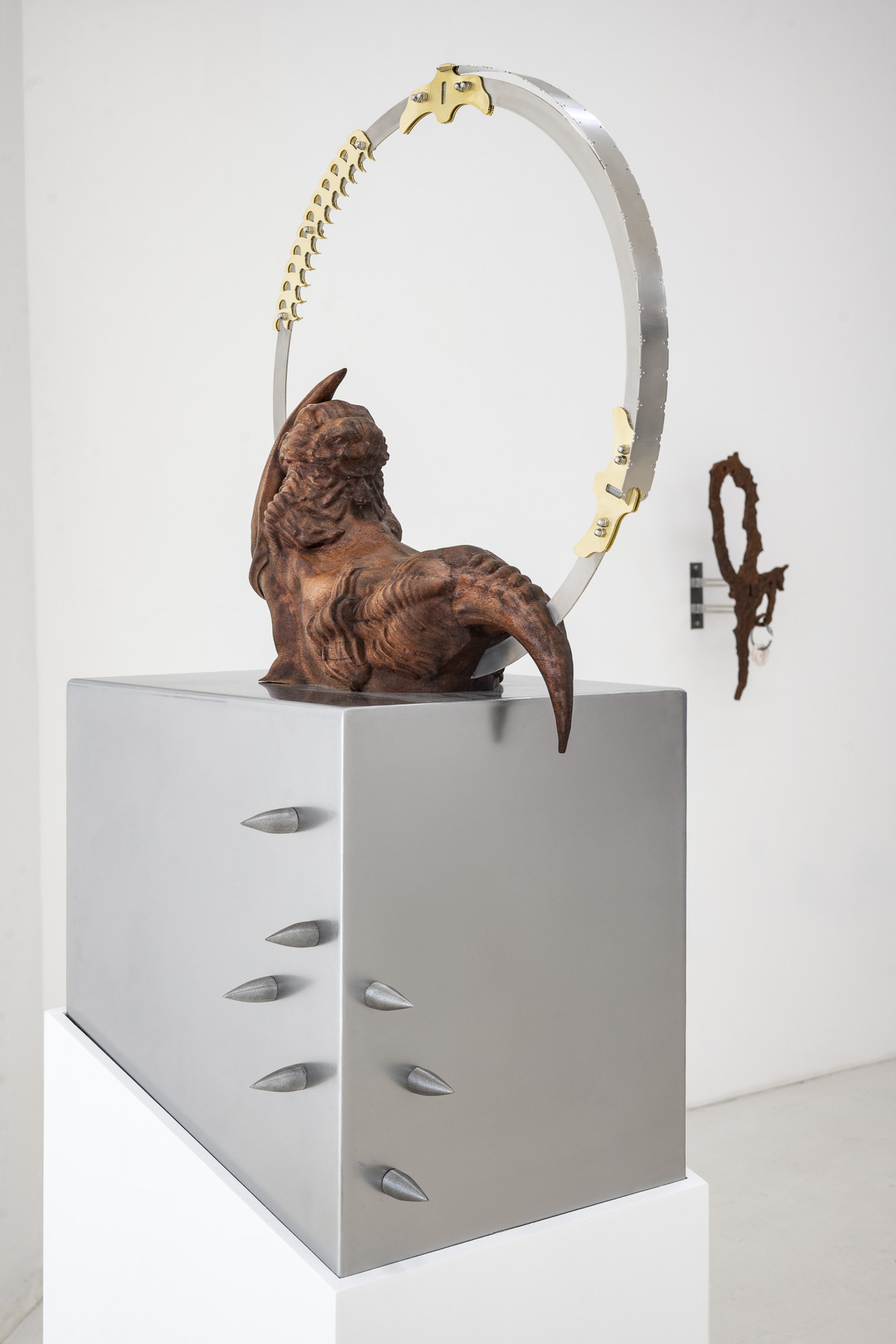
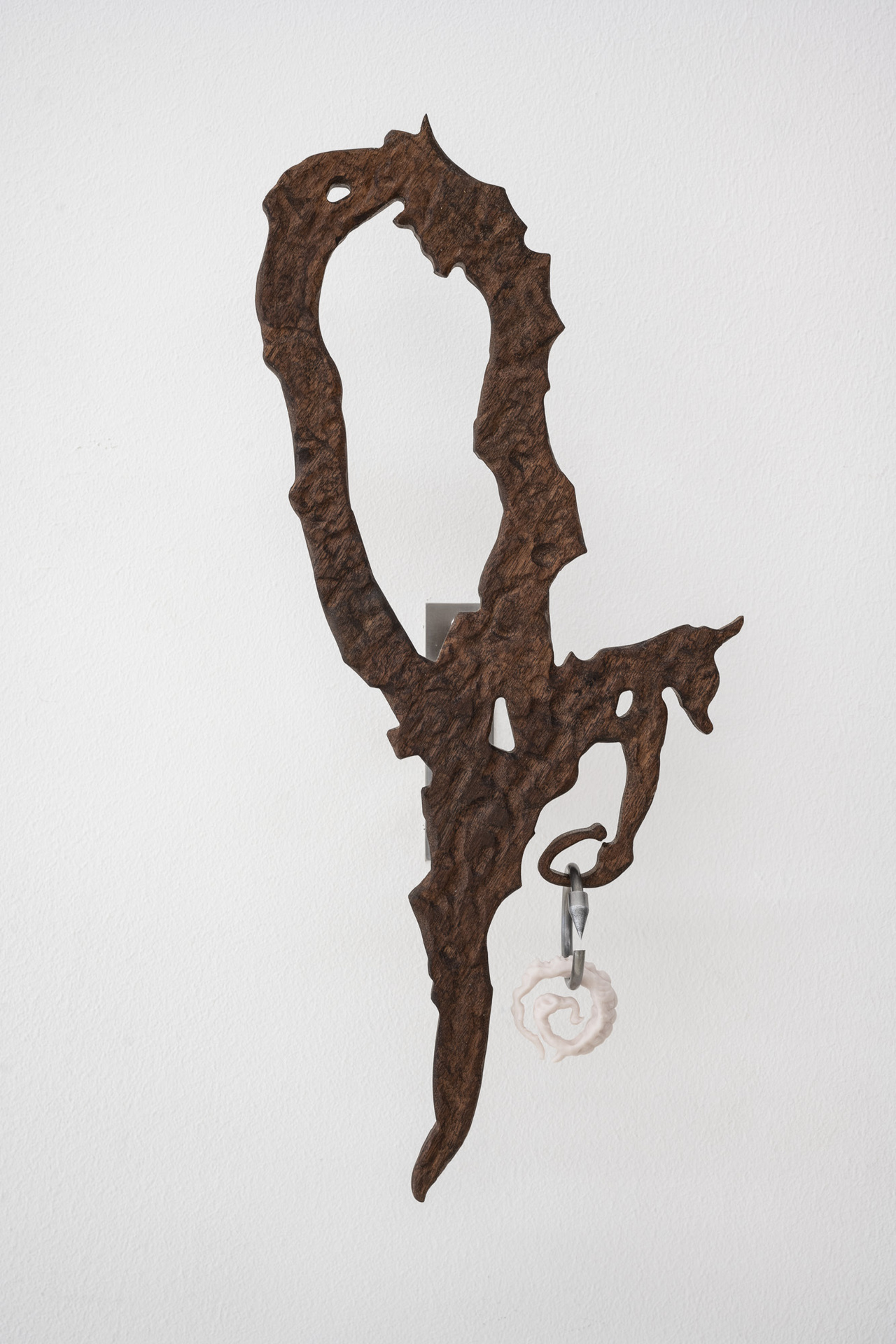
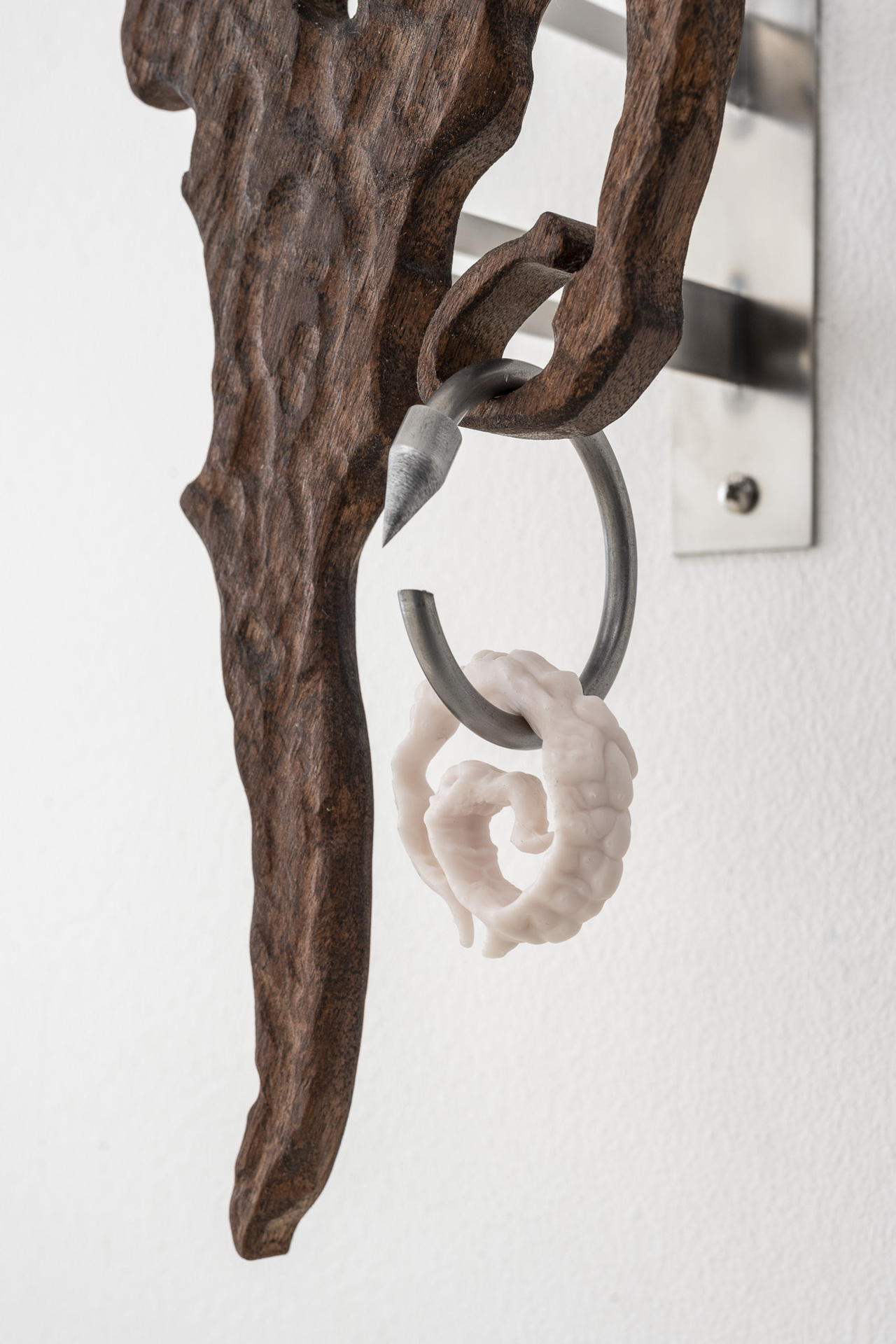
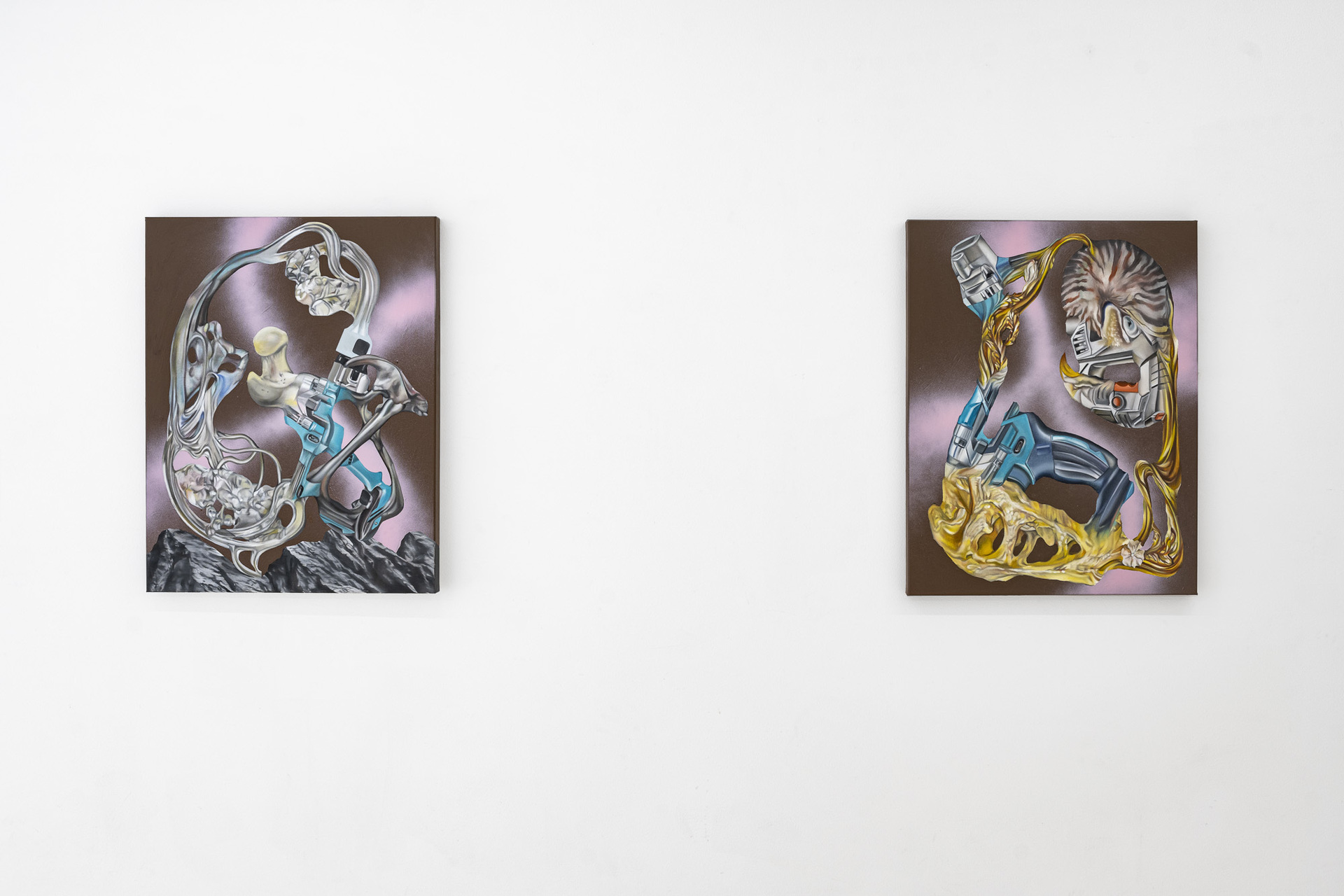
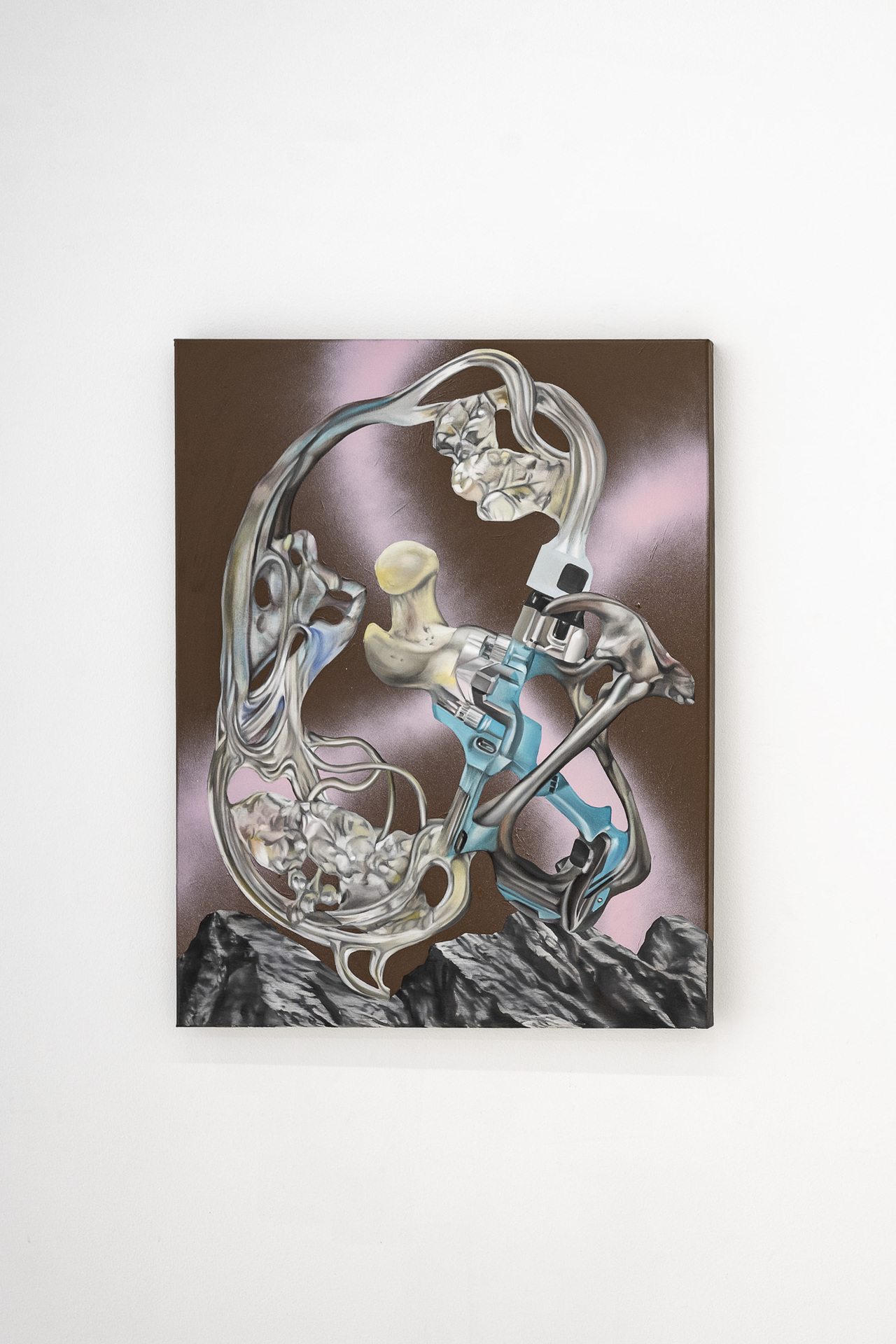
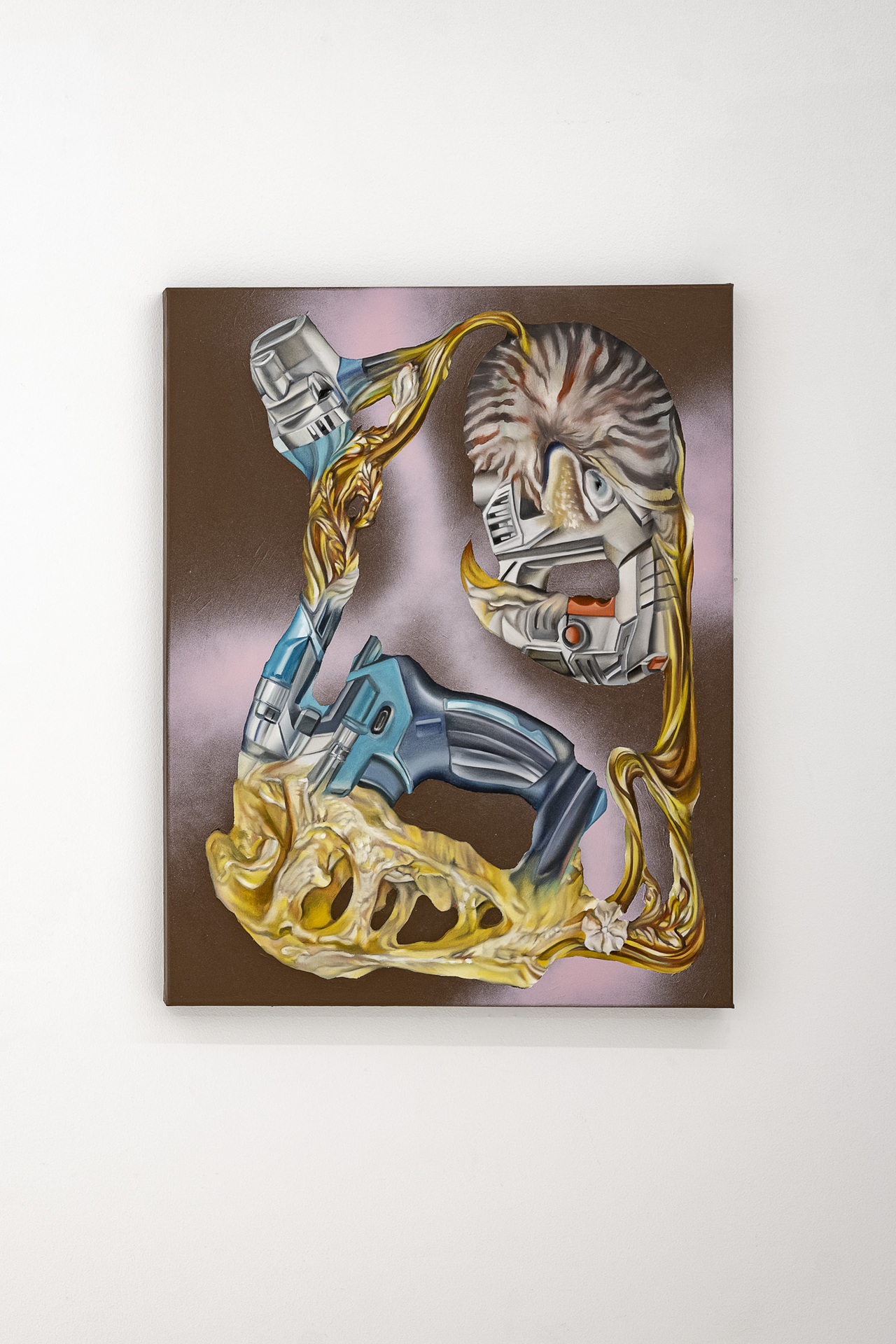
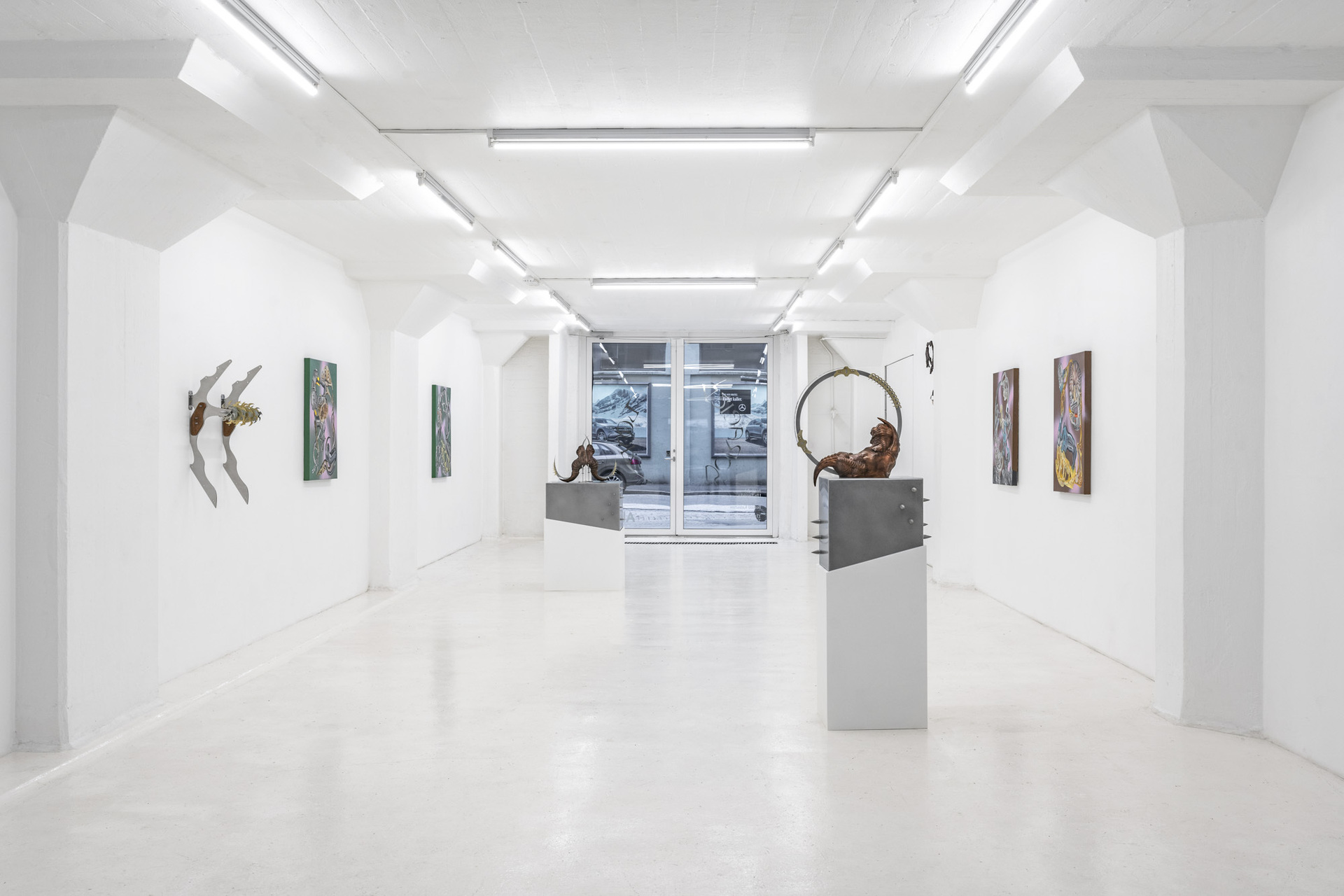
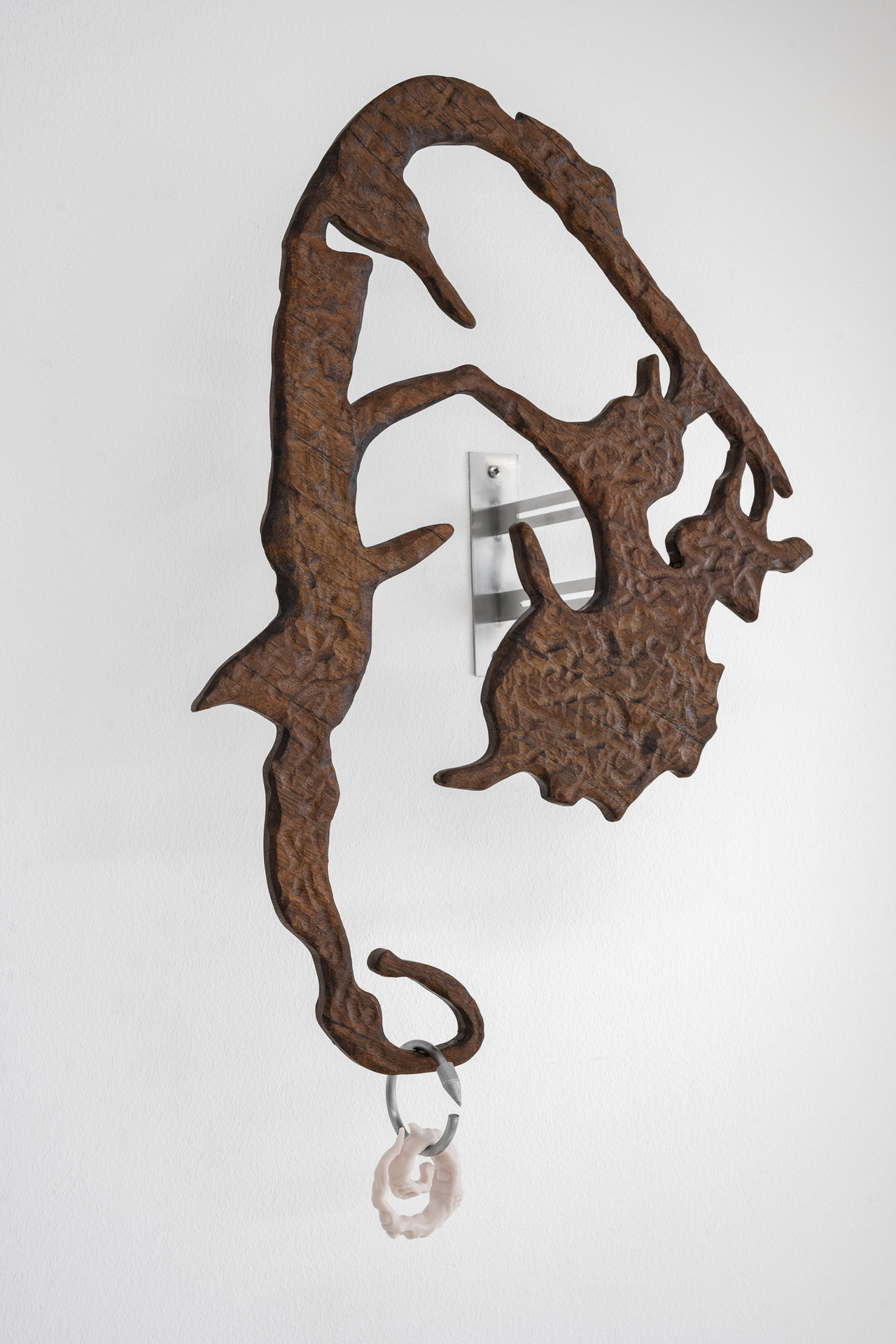
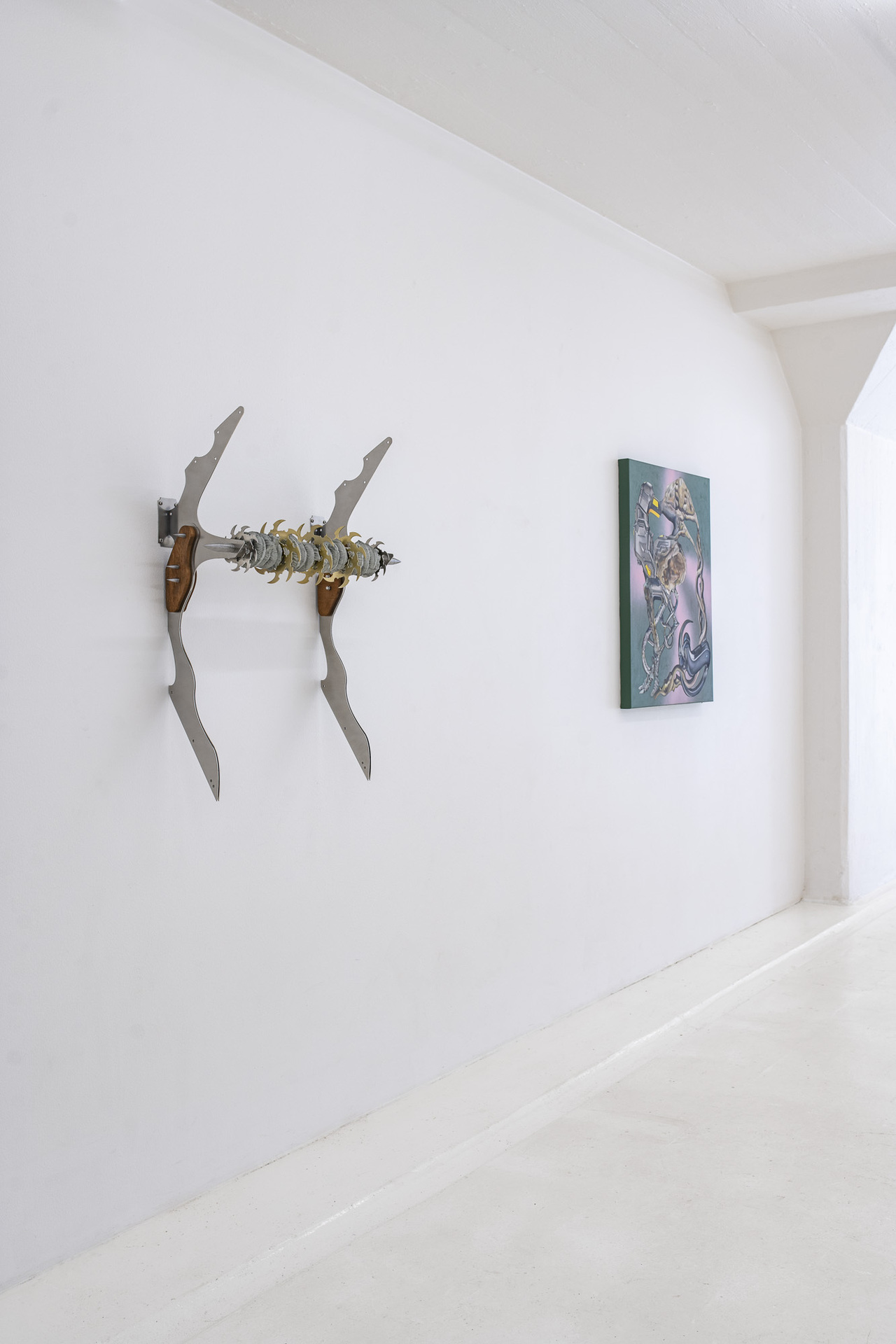
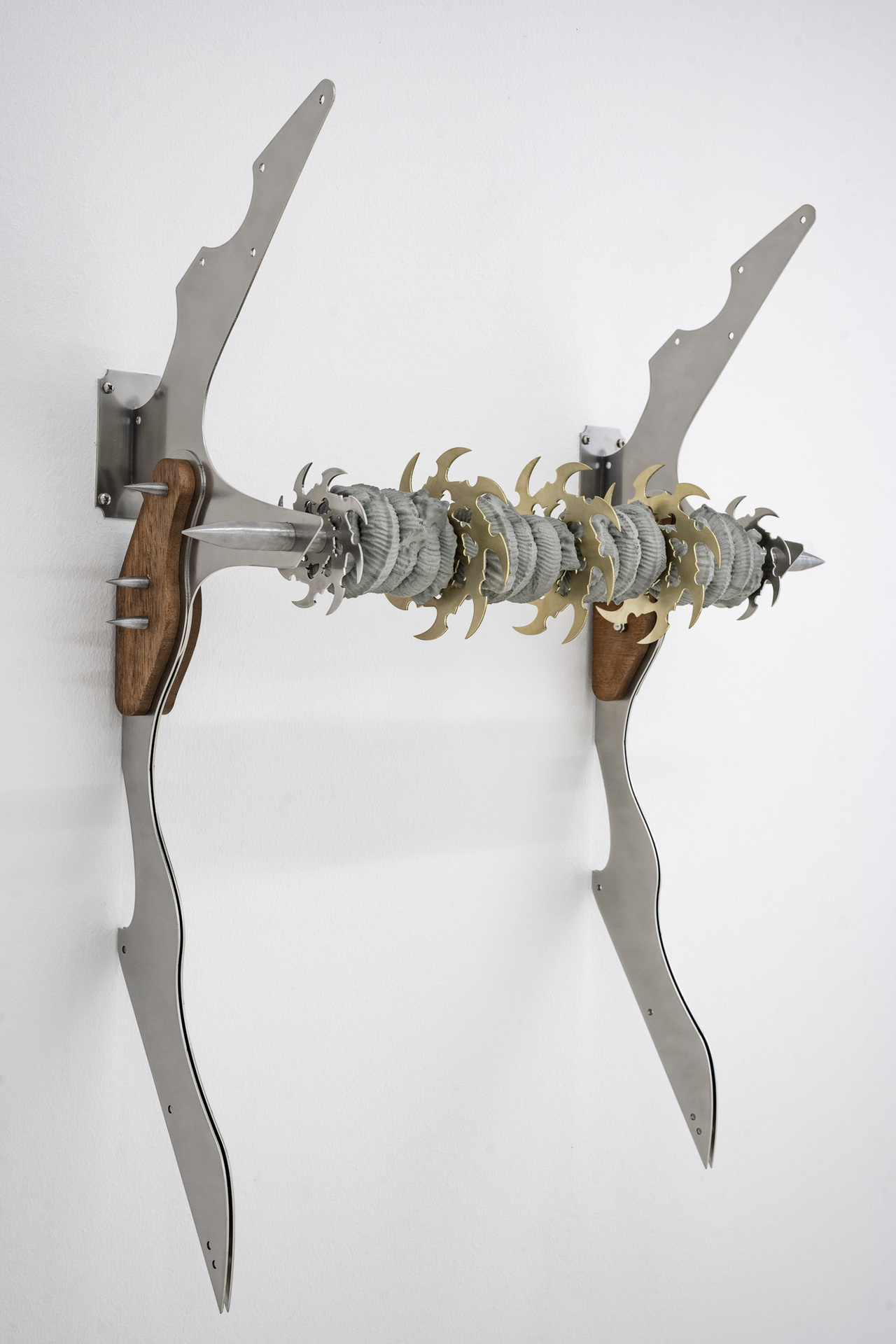
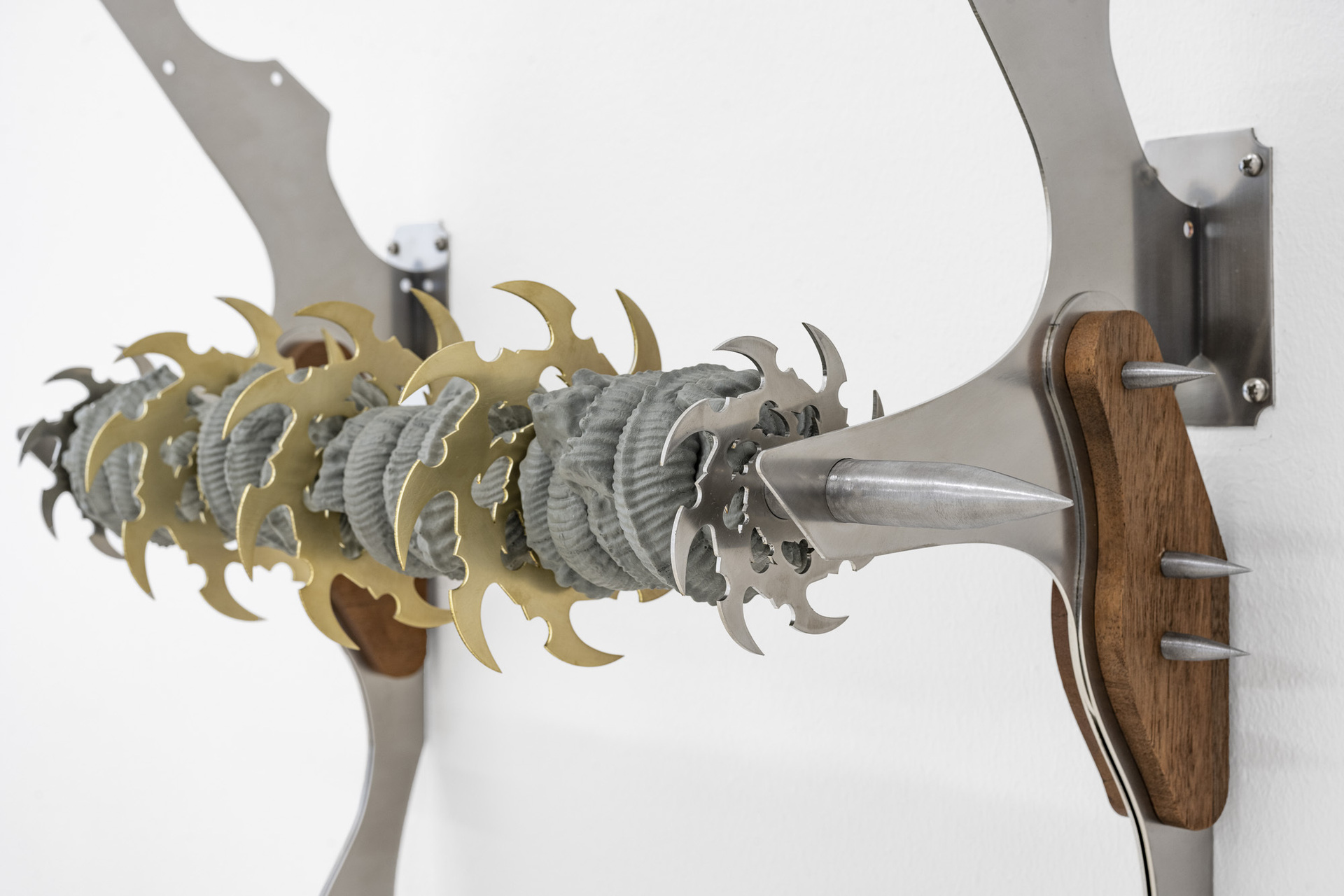
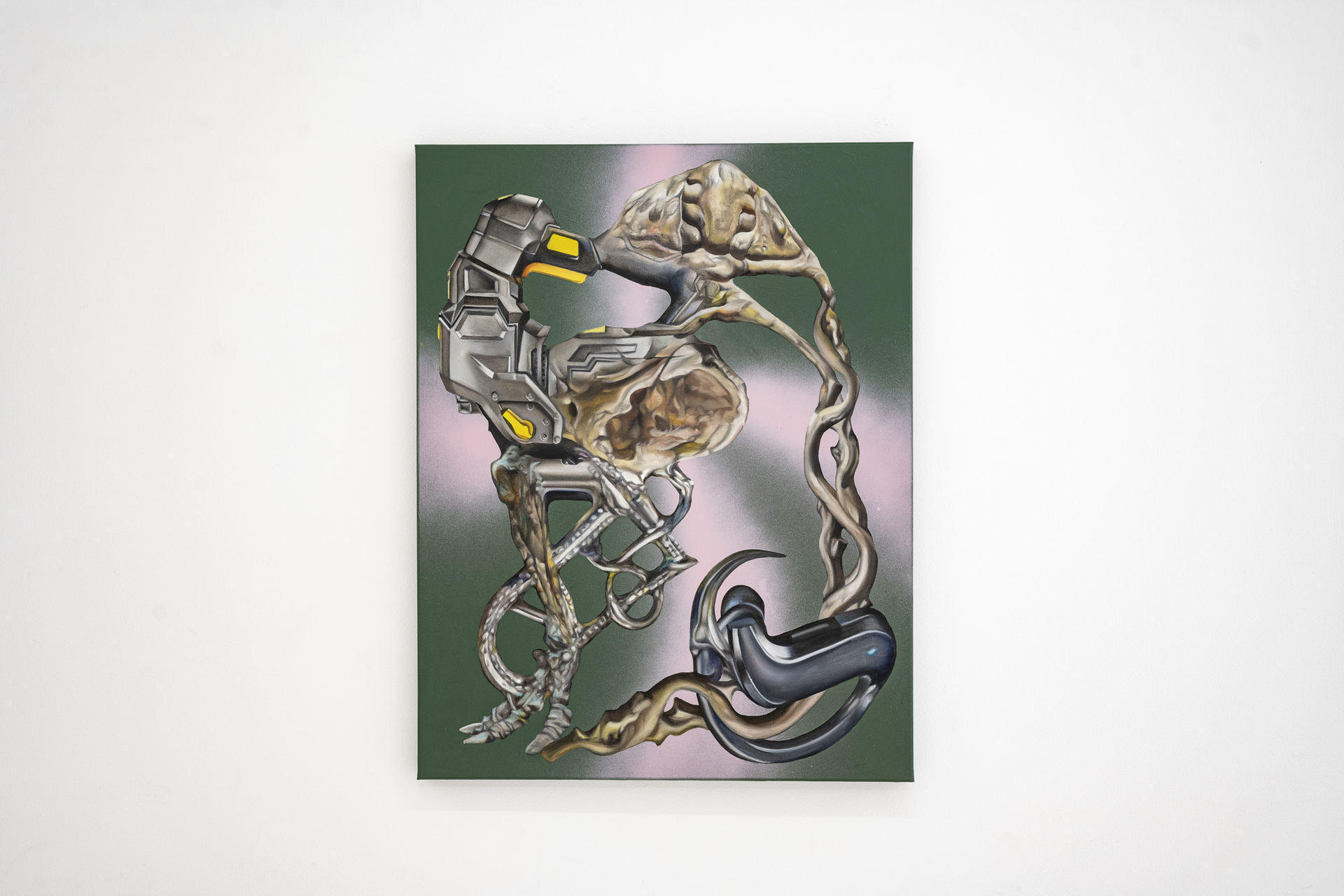
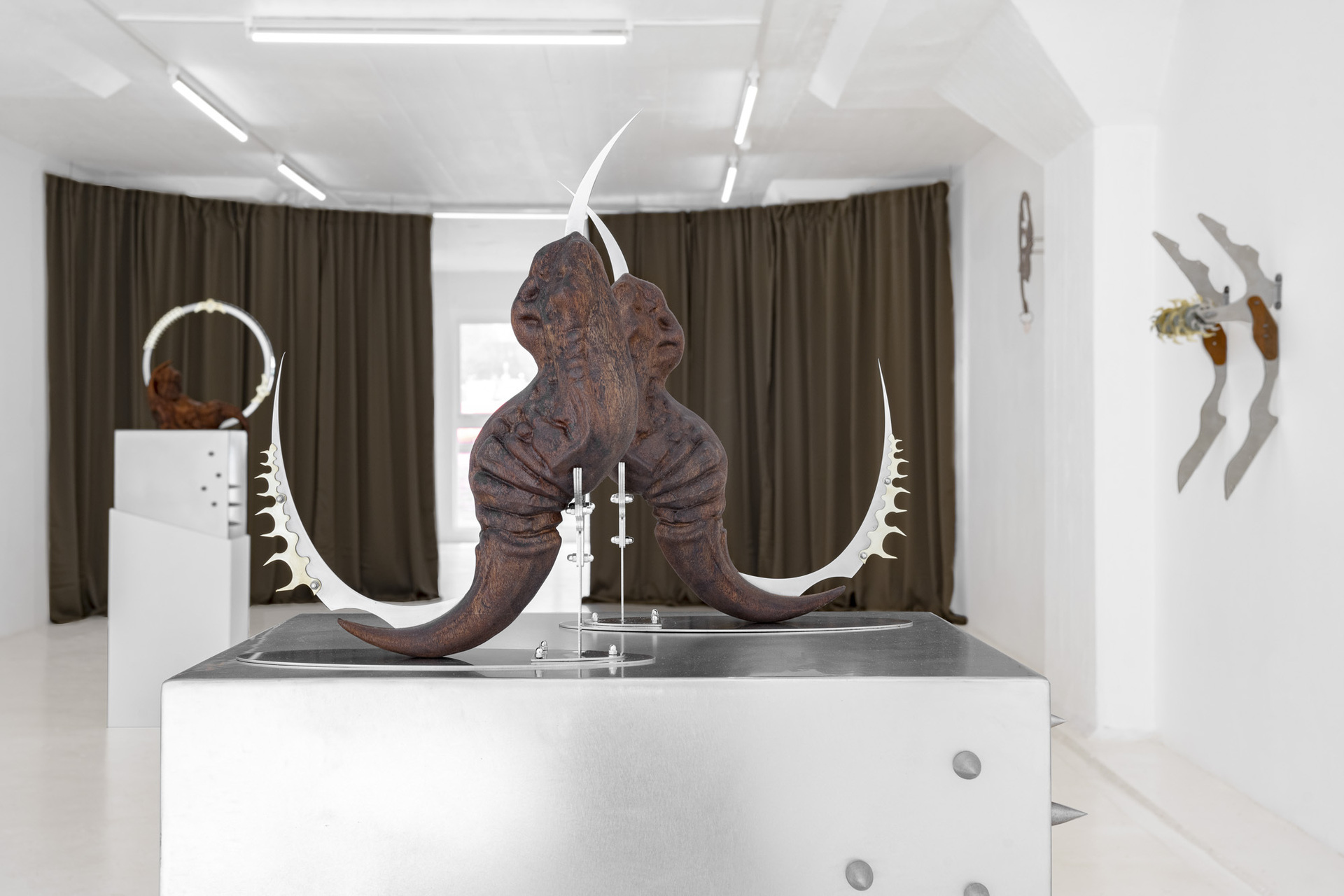
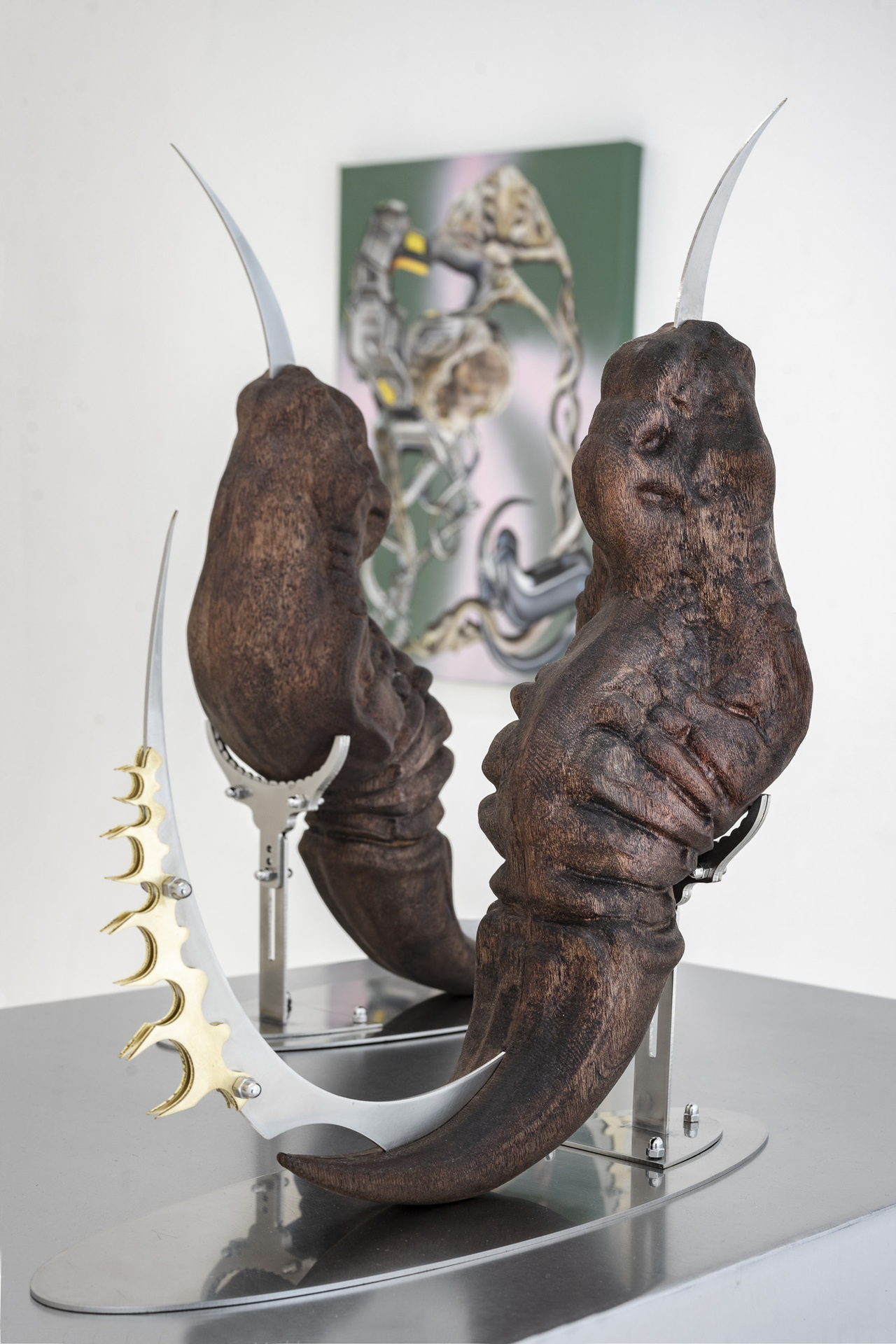
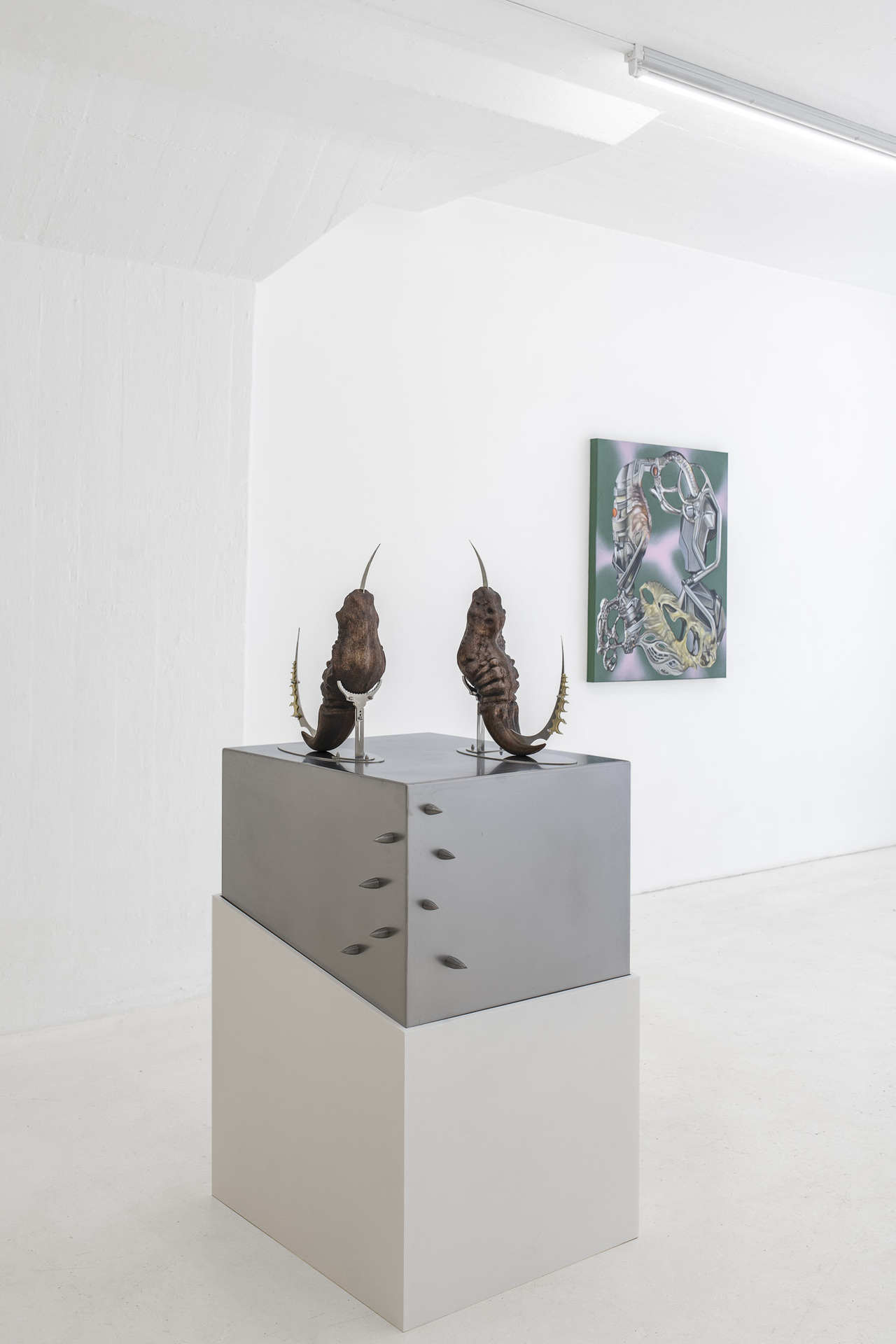
Location
AldeaDate
12.04 –10.05.2022Curator
Cameron MacLeodPhotography
Thor BrødreskiftText
Inside Job (Ula Lucińska, Michał Knychaus) and Botond Keresztesi, met in 2021, during their participation in the 34th Ljubljana Biennale. The three bonded over their interest in creating multi-layered environments as simulations of algorithmic and speculative thinking. Their similar aesthetic sensibility references a contemporary visual language that merges the digital and the analog and plays with concepts of flatness and assemblage to combine organic and inorganic matter in representations of posthumanist philosophies. The exhibition at ALDEA is the resulting exploration of all these intersecting interests that have been developed by the three artists, during the month they spent living and working side by side in Bergen.
Inside Job uses industrial and recycled materials to create installations and sculptural objects. For the work on view, they found mahogany from old cargo ships in Bergen, in which they milled and carved fossilized shapes of extinct species. Trilobites and ammonites emerge from the wood or the metal used by the artists and are further combined with laser-cut brass and stainless steel elements. These fractal-like metal shapes have a post-industrial technological coldness to them, whilst simultaneously evoking nature-inspired pagan elements. The assemblages, through their oscillation between temporal representations, and fusion of organic and inorganic materials, suspend the sense of temporality in the space.
In a similar fashion, Botond Keresztesi’s paintings depict self-standing techno-organic forms, transposed on canvas in oil and acrylic. These ouroboros-like creatures, seem to be captured in movement, as they are morphing and incorporating pieces of machinery, robotics, animals, bones, as well as decorative Art-Nouveau shapes and root-like ornaments. These self-standing compositions are floating on airbrushed backgrounds of landscapes or colorful abstraction, and they appear as flashbacks of dream-like scenarios of retro-futuristic predictions.
The two practices have nourished a dialogue that is palpable throughout the exhibition and that highlights the artists’ interest in exploring new ontological classifications. These new classifications carry the hope of potential reconciliation between two concurring forces that are currently unfolding at a scorching pace: technological development and climate destruction. The techno-organic creatures not only capture but also amplify the speed of this speculative merger, as they are themselves transformed into what the artists call “technofossils”.
The exhibition captures the unmetabolized anxieties of our collective unconscious and it depicts the murkiness of the epistemological crisis that we - as humanity - are currently experiencing. Uneasy as it seems, within this ungraspable scale of deep time and moving matter - set at work by both our species and by powers that are now far beyond it - the exhibition finds a comforting pattern in accepting the continuous mutation of form, consciousness, and sensitivity. Moreover, working through the anxieties of envisioning futures that are decentering the human, the artworks make use of the limitless reconfigurations of both consciousness and technology, to help us mold viable posthuman co-adaptations with and within nature.
Adriana Blidaru
Adriana Blidaru